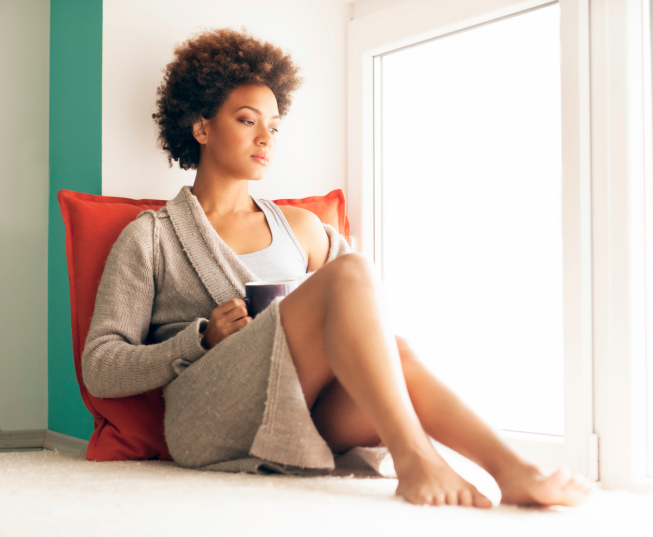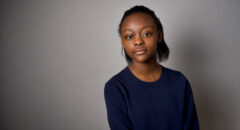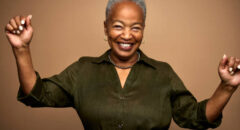
There are countless myths and stigmas that surround depression in the Black community, particularly the strong black woman.
The Myths Impacting the Strong Black Woman
Myths surrounding the "strong Black women" can create needless pain and confusion. It can ultimately keep people from getting proper treatment.
"Strong Black women" are supposed to:
- Have their own
- Not depend on anyone else for anything, but still 'let a man be a man'
- Be sexy, but not too sexy or thirsty for a man
- Be able to do for others and for themselves without showing weakness
- ...and so much more
Common Misconceptions Around the Strong Black Woman
The following statements reflect some common misconceptions about African Americans and depression:
“If our people could make it through slavery, we can make it through anything.”
“When a black woman suffers from a mental disorder, the opinion is that she is weak. And weakness in black women is intolerable.”
“You should take your troubles to Jesus, not some stranger/psychiatrist.”
"You're too strong of a Black woman to be feeling this way. Ge over yourself."
"Do you know how many people are depending on you? Pull it together."
The truth is, people with depression can’t just “snap out of it.”
Strong Black Woman and Depression
Professor and blogger writer Monica Coleman, Ph.D writes:
"In many ways, I do think that there is a greater stigma among African American culture than among white cultures. I live in southern California, and many white people will freely reference “seeing a therapist” in normal conversation. Black people don’t do that. Seeing a therapist is generally seen as a sign of weakness or a lack of faith. There is still an active mythos of 'the strong black woman,' who is supposed to be strong and present and capable for everyone in her family – and neglects her own needs.
In the midst of a depressive episode, I had a friend say to me, 'We are the descendants of those who survived the Middle Passage and slavery. Whatever you’re going through cannot be that bad.' I was so hurt and angry by that statement. No, depression isn’t human trafficking, genocide or slavery, but it is real death-threatening pain to me. And of course, there are those who did not survive those travesties. But that comment just made me feel small and selfish and far worse than before. It made me wish I had never said anything at all."
Watch for Signs of Clinical Depression
Symptoms of clinical depression can happen at any time to any woman.
Due to cultural backgrounds, depression may be exhibited differently among African Americans. If you suspect yourself—or someone you care about—needs could have clinical depression, take a look at the following list of symptoms.
If you experience five or more for longer than two weeks, if you feel suicidal, or if the symptoms interfere with your daily routine, see your doctor:

- A persistent sad, anxious or “empty” mood, or excessive crying
- Reduced appetite and weight loss or increased appetite and weight gain
- Persistent physical symptoms that do not respond to treatment, such as headaches, digestive disorders and chronic pain
- Irritability, restlessness
- Decreased energy, fatigue, feeling “slowed down”
- Feelings of guilt, worthlessness, helplessness, hopelessness, pessimism
- Sleeping too much or too little, early-morning waking
- Loss of interest or pleasure in activities, including sex
- Difficulty concentrating, remembering, or making decisions
- Thoughts of death or suicide, or suicide attempts
Here's What Research Reveals About the Strong Black Woman
A study that examined the effects of the “superwoman schema” found that this stereotype made black women more susceptible to chronic stress, which can negatively impact health. Amani Allen, the Executive Associate Dean and Associate Professor of Community Health Sciences and Epidemiology in the School of Public Health at the University of California, Berkeley, was the primary researcher of the study.
“What [black women] were really describing was this idea of being strong black women and feeling the need to prepare for the racial discrimination they expect on a daily basis, and that preparation and anticipation adds to their overall stress burden,” Allen told Greater Good Magazine.
What is happening in the relationship between the strong black woman stereotype and racial discrimination is creating a vicious cycle.
Racial and gender-based discrimination directed toward black women has been linked to various long-term physical and mental health challenges such as high blood pressure, heart disease, depression, anxiety, and suicidal thoughts.
The strong black woman stereotype worsens existing stress because of the expectation that black women need to look strong and not discuss their challenges.
This can also impact help-seeking behaviors. Experiences with discrimination and the pressure to not express pain can impact how quickly a black woman might seek medical care, despite the need.
This can have a further impact on health disparities such as maternal death and breast cancer, both of which have a higher prevalence among young black women compared to white women.
So What Can We do?
Remember, there's no shame in seeking help. No man--or woman--is an island.
Ask for help. Talk to someone and don't be afraid of baby steps. Nothing was solved overnight, so give yourself the kind of grace you feel like you need to give to others.
And remember the "S" on your chest does not stand for superwoman, it means "self-care." Self-care can be your superpower. By pouring into yourself, you can then pour out to others so much more.








